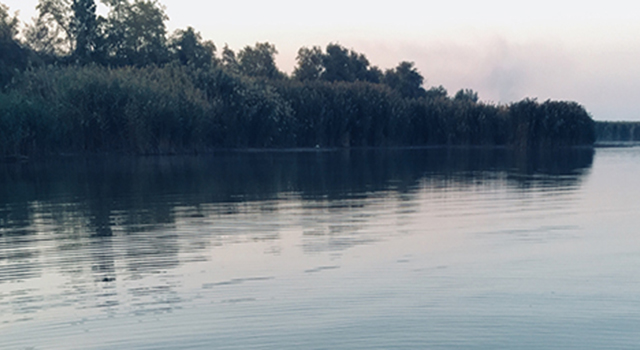
Prof. Meryem Beklioğlu from the Biological Sciences Department and her team including Prof. Zuhal Akyürek from the Civil Engineering Department and Asst. Prof.Antoine Dolcerocca from the Sociology Department of the Middle East Technical University are part of a consortium running a new Horizon 2020 project, ‘PONDERFUL’, led by the University of Vic (Spain). The project’s overarching aim is to develop improved methods for maximizing the use of ponds and pondscapes in climate change adaptation and mitigation, biodiversity conservation, and the delivery of ecosystem services.
Because of their small size, the significance of ponds has long been underestimated. For example, they are largely excluded from the Water Framework Directive in Europe, even though the Directive is actually intended to protect ‘all waters’. In North America, their inclusion in the protections provided by the Clean Water Act is contested, and in other areas they lie largely outside regulatory systems. However, research over the last 10-15 years has shown that, because of their abundance, heterogeneity, exceptional biodiversity, inherent naturalness, and biogeochemical potency, ponds play a role in catchments, landscapes, and potentially at the continental scale, which is completely out of proportion to their small size.
The main aims of the research in PONDERFUL will be to increase understanding of the ways in which ponds, as a Nature-Based Solution (NBS), can help society to mitigate and adapt to climate change, protect biodiversity, and deliver ecosystem services. The project starts in December 2020 and runs for four years.
The project has five main components:
- Developing a strategic approach to engagement with stakeholders to ensure that they are able to implement the benefits of ponds as Nature-Based Solutions effectively,
- Through the generation of extensive new biodiversity and ecosystem services datasets, to better establish the relationship between pond biodiversity and the delivery of ecosystem services,
- Establish models that enable us to test and optimize practical scenarios for the use of ponds and Nature-Based Solutions,
- Create a set of demonstration sites across Europe which show to practitioners and policymakers how ponds can help to mitigate and adapt to the effects of climate change,
- Ensure that the project’s outputs are widely known to policymakers, practitioners, and other stakeholders.
The project brings together experienced researchers from nine European states and Turkey and Uruguay. Middle East Technical University is among one of the 18 project partners working together to deliver this important and innovative project. The full project team comprises the University of Vic – Central University of Catalonia; IGB Leibniz-Institute of Freshwater Ecology and Inland Fisheries; Katholieke Universiteit Leuven; Haute Ecole Specialisée de Suisse Occidentale; Universitat de Girona; Ecologic Institute, Berlin; University College London; Middle East Technical University; CIIMAR – Centro Interdisciplinar de Investigação Marinha e Ambiental; Aarhus Universitet; Uppsala Universitet; Bangor University; Technische Universitaet Muenchen; Institut Superieur d’agriculture Rhone Alpes I.S.A.R.A; Freshwater Habitats Trust; Universidad de la Republica, Uruguay; Randbee Consultants and Amphi International.







